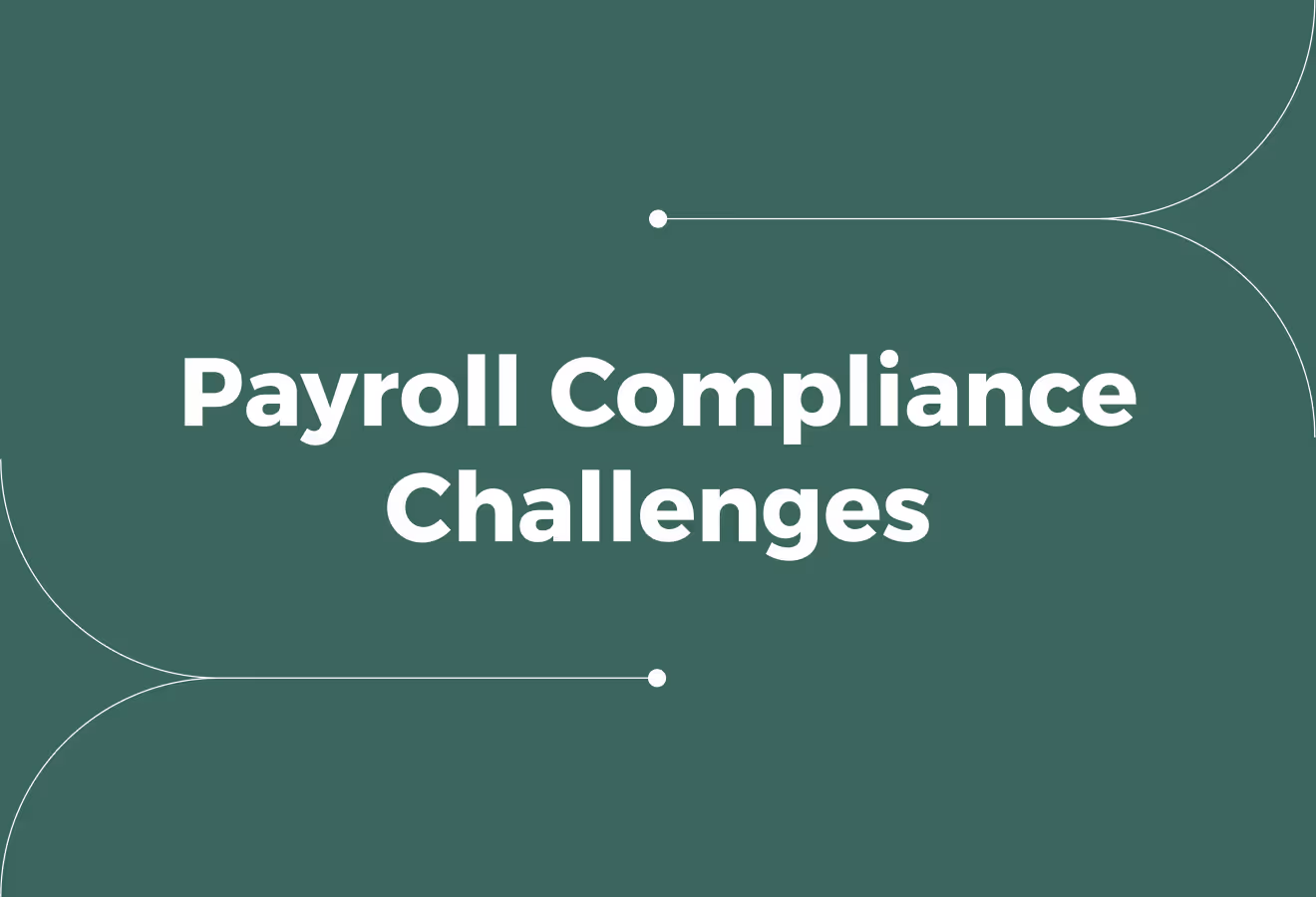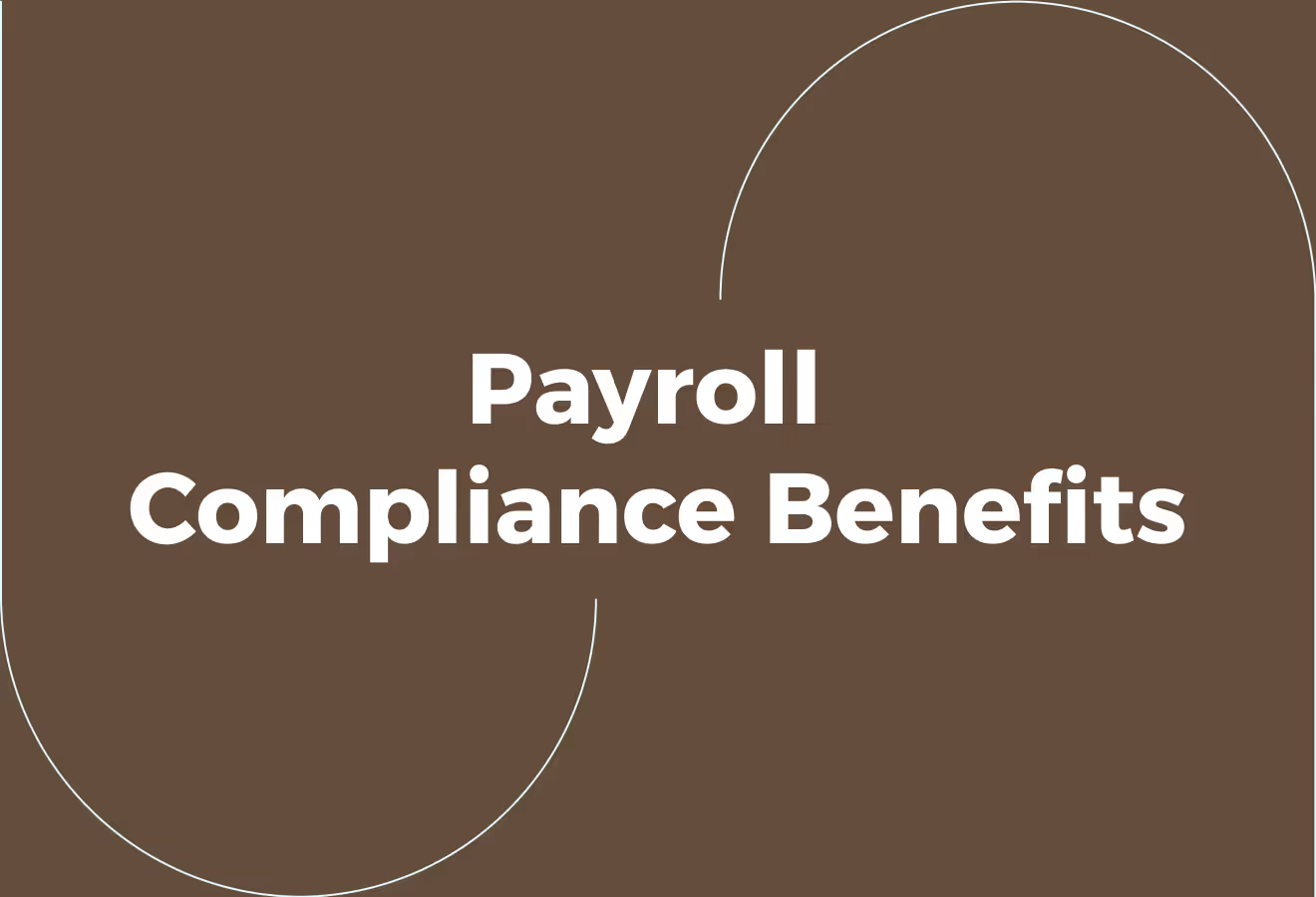Navigating Payroll and Compliance Challenges for Global Businesses

Imagine you’re a business owner with plans to expand your operations to a new country. But before you can take advantage of new opportunities, you must pause and make sense of the local payroll and compliance regulations. Non-compliance can result in significant penalties that may jeopardise your business before it has a chance to establish itself. To avoid such issues, many companies choose to work with an experienced employer of record to help navigate payroll and compliance challenges globally. This article examines standard payroll and compliance challenges, guiding how to address them effectively.
Cercli HR offers a comprehensive global HR system that facilitates efficient payroll and compliance management, enabling seamless international expansion.
What is Payroll Compliance? Why Does It Matter?

Payroll compliance refers to adhering to all relevant laws and regulations when paying employees, whether:
- Local
- National
- International
It’s about ensuring that everything, from tax withholdings to benefits contributions, is handled correctly and paid on time.
Payroll regulations vary significantly between countries and regions, and they are subject to frequent changes in response to:
- Political
- Economic
- Social developments
As businesses expand into new markets, the complexity increases.
Each new jurisdiction brings a unique set of:
- Requirements
- Timelines
- Reporting obligations
How Payroll Compliance Strengthens Workforce Trust and Business Reputation
Staying compliant isn’t just about avoiding fines or legal issues. It protects your company’s reputation and fosters trust with your team. When payroll is managed effectively, employees are paid accurately and on schedule, without unexpected issues or delays. That consistency builds trust and loyalty across teams in different locations.
Related Reading
- Best Employer of Record Companies
- Employer of Record vs Staffing Agency
- Employer of Record Payrolling
- Challenges of Managing a Global Workforce
- Consequences of Payroll Errors
Common Payroll and Compliance Challenges Businesses Face

Misclassifying employees as contractors, and vice versa, can already be complex within a single country. International differences in worker classifications further increase the risk of incorrect payments or taxation.
Classifying a worker as a contractor when they are an employee may result in legal penalties such as:
- Fines
- Reinstated benefits
- Back pay
Each country may have its own criteria for classifying contractors, which can heighten compliance risks when managing different worker types.
The Risks of Decentralisation in Payroll Operations
Global businesses often face internal challenges when balancing centralised policies with decentralised payroll operations. Given legal differences at the country level, it is rarely feasible to develop universally applicable payroll policies. Decentralising payroll to local offices also carries potential risks. This may make it more challenging to maintain oversight across offices, increasing the likelihood that non-compliant practices will go unnoticed.
That lack of transparency can lead to inconsistency and confusion around organisational best practices. Decentralisation also adds complexity because each location may follow a different payroll process, making it more challenging to consistently monitor data for compliance.
Understanding the Legal Complexities of Global Payroll
Expanding into new jurisdictions, each governed by distinct labour laws, adds complexity to payroll operations. Your organisation is responsible for monitoring regulatory updates in each jurisdiction and updating processes to maintain compliance.
As new regulations emerge related to data privacy, ESG requirements, or remote work, payroll and legal teams must stay informed and adjust their internal guidelines accordingly.
Understanding Employment Law Variance by Country
Because payroll compliance varies by country, companies must understand and abide by local payroll and employment laws in each target market. These laws typically cover requirements for minimum wage, paid leave, tax contributions, statutory benefits, and regulations governing remote work.
Examples include the European Union’s Working Time Directive (WTD), which protects employee health and safety by limiting working hours and overtime, and by setting standards for rest breaks and paid leave. The WTD is enforced differently in each member nation and has evolved to address remote work scenarios.
Country-Specific Payroll Entitlements and Legal Requirements
China’s Labour Law regulates working hours and outlines requirements for contracts, wages, dispute resolution, conditions, welfare, and overtime, including recent updates focused on digital payment methods.
In the Philippines, employees are entitled to a mandatory 13th-month pay, equivalent to one-twelfth of their annual base salary.
Other countries that require employers to provide 13th-month pay include:
- Indonesia
- Greece
- Mexico
- Brazil
- Spain
Managing Employee Data Breaches in Payroll Operations
Employee data breaches are a growing concern for global enterprises, and countries worldwide are revisiting their data protection and privacy laws. Although many of these laws focus on online transactions and consumer data, safeguarding employee information is crucial for maintaining ongoing compliance.
The EU’s General Data Protection Regulation (GDPR) governs the use, storage, and access of employee data, with direct implications for payroll systems. Organisations that breach GDPR standards may face significant penalties, up to €20 million or 4% of global annual revenue.
Supporting Seamless HR and Payroll Operations Across the MENA Region
Cercli supports HR operations in line with the UAE’s commitment to efficient, business-friendly practices. Cercli is designed for MENA businesses, bringing together key workforce management functions in a single platform. Manage your team, whether local or international, with the ability to process payments in more than 150 countries.
Cercli covers multi-currency payroll, leave tracking, onboarding, and compliance documentation, tailored to meet the needs of the MENA market.
A Centralised HR Solution for Scalable Workforce Management in the Middle East
Cercli reduces the need for multiple disconnected systems by offering a centralised platform that helps businesses stay compliant and manage their workforce more efficiently.
Whether managing a team of 25 or coordinating 500 employees across different countries, Cercli provides local expertise and practical tools to support workforce management across the MENA region.
Learn more about an HR system designed to support businesses across the Middle East. Arrange a demonstration to learn more about Cercli’s global HR system.
Related Reading
How to Avoid Payroll and Compliance Challenges

Stay Updated with Payroll Regulations
Payroll laws and regulations are frequently updated. Organisations must monitor and stay informed about payroll rules, tax obligations, and labour requirements in each country where they operate. To remain compliant, businesses may subscribe to trusted sources, attend training sessions, or consult legal and payroll professionals regarding changes that could affect their obligations.
Establish Payroll Policies and Procedures
Clear payroll policies can support compliance by outlining the key processes and responsibilities involved in payroll management. These policies should be aligned with relevant labour laws and communicated to all applicable employees.
Maintain Accurate Employee Classification
Employers working with both employees and independent contractors must ensure accurate classification to prevent compliance risks. Understanding the obligations associated with each classification helps reduce the risk of misclassification and potential legal issues.
Conduct Regular Payroll Audits
Internal payroll audits help:
- Detect errors
- Ensure accuracy
- Highlight areas for improvement
Organisations may consult payroll specialists before conducting audits to help ensure compliance.
Seek Professional Assistance
It is advisable for businesses to seek guidance from:
- Payroll professionals
- Tax advisers
- Payroll service providers
These experts provide practical guidance to help businesses manage payroll effectively and in compliance with local regulations.
Use Payroll Software and Platforms
A platform such as Cercli can support payroll procedures, particularly for businesses operating in the MENA region. Payroll solutions help manage salaries, benefits, taxes, contributions, and related documentation in a single system.
Benefits Of Maintaining Payroll Compliance

Non-compliance with payroll regulations carries significant financial and operational consequences. A 2024 report found that 53% of global companies faced payroll penalties for non-compliance in the past five years. According to the Internal Revenue Service (IRS), 33% of employers in the United States make payroll-related errors.
These errors often arise from the complexity of managing payroll across multiple jurisdictions and evolving regulations. This can lead to a range of issues, including reduced employee trust and financial penalties.
The Financial Impact of Payroll Compliance
Organisations face significant monetary penalties for payroll violations. For example, the Commonwealth Bank of Australia and its subsidiary were fined $10.34 million for underpaying entitlements to approximately 7,400 employees.
The Impact of Payroll Compliance on Employee Trust and Satisfaction
Accurate and timely payroll processing is essential for maintaining employee trust. Payment delays or errors can affect morale and productivity. They may also create difficulties for employees who require accurate income records for personal finances.
One in five employees has left a role due to payroll errors, highlighting the importance of getting it right. Payroll issues often lead to decreased workplace satisfaction and increased turnover.
The Global Payroll Compliance Challenge
International operations face unique compliance challenges. For example, Brazil requires a 13th-month salary payment, while Australia mandates employer pension (superannuation) contributions.
The United Arab Emirates follows its own end-of-service benefit structure, which differs from systems used in many Western countries. Missing deadlines or failing to comply with country-specific requirements can result in penalties and operational disruptions.
The Operational Consequences of Payroll Non-compliance
Beyond financial penalties, non-compliance can lead to:
- Suspension of business licences.
- Temporary operational shutdowns.
- Legal proceedings in serious cases.
- Increased regulatory oversight.
- Damage to business reputation.
Related Reading
Book a Demo to Speak with Our Team about Our Global HR System
Payroll and compliance requirements can become increasingly complex as companies expand into new markets. Each jurisdiction has its own payroll regulations, which are subject to regular updates and revisions.
For example, companies expanding into the UAE must understand local labour laws and the role of economic free zones, which may influence their operations. They are also required to meet onboarding, payroll, and employee benefit obligations before commencing operations.
Supporting Payroll and Compliance During Market Expansion
Cercli supports businesses entering new markets by simplifying payroll and compliance processes. Cercli’s local knowledge and automated tools help reduce the risk of errors and support consistent operations in new regions.










